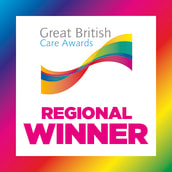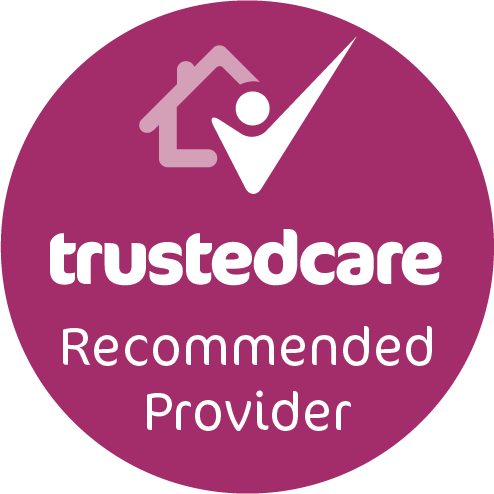Rehabilitation: It’s a word that can both inspire and frustrate those who are plunged into a rehabilitation programme following an injury or the onset or progression of an illness. At ENA we support many clients who are beginning or continuing a rehabilitation programme, for example as a result of a spinal injury or a stroke, and from our experience we know that a really personalised approach is vital to help each individual to achieve their goals in whatever timeframe is right for them.
If you are beginning or continuing to work on your rehabilitation programme, we hope that the following advice will help you to get the most out of it and achieve all you are aiming for.
- Your goals are your goals. Trying to emulate others or follow the same pattern or trajectory as someone else’s rehabilitation programme can often produce frustration and despondency. Set your own goals, in conjunction with your health professionals and your ENA care team, and make your rehabilitation programme truly yours.
- Work at your own pace. No two people will ever rehabilitate from an injury or illness in the same way. All of our bodies and minds are unique, so it’s really important to work at your own pace and be realistic about what you can achieve on any given day. You may be tempted to push yourself harder, and if your health team agree that there aren’t any significant risks from doing that then great, but don’t feel you have to go harder and faster towards more advanced goals if your body, or your health team, are telling you otherwise.
- Celebrate your achievements. Be they big or small, celebrating your achievements during your rehabilitation programme is a vital part of keeping your motivation and nurturing the sense that the work you are doing is worthwhile. Remember that progress takes many forms and the smallest advancements are sometimes the most important, so enjoy those positive milestones and feel proud of yourself.
- Guard against giving up. At some point, most people who are following a rehabilitation programme will hit a mental or physical wall and just want to give up. Our live-in carers are trained to support and motivate you to continue, and by getting to know you as an individual they are better placed than many other professionals to know how best to respond to how you are feeling – whether you need a shoulder to cry on or someone to encourage you.
- Your mind is as important as your body. Many rehabilitation programmes focus on physical goals with the aim of supporting your body to re-learn how to function as well as possible and complete daily activities again. It’s important to remember, however, that good mental health is a key part of being able to begin, continue and/or complete your rehabilitation programme. Use tools like the Five Ways to Wellbeing to support your mental health, and talk to individuals you trust – like your live-in carer – about how you are feeling.
- Ask for help. Tempting though it can be to try and do as much as possible alone, having the support of family members, friends and your live-in carer will make a huge difference to how positive you are about your rehabilitation programme and ultimately how well you progress with it.
- Resting isn’t weakness. It’s as important to give your body and mind time to heal and recoup as it is to challenge them though your rehabilitation. Make sure you take time to rest and don’t feel guilty doing it – your live-in carer can help to complete any domestic tasks you want done while you rest.
- Be realistic. While many people find that the life they adapt to living having had a spinal injury, a stroke, or being diagnosed with Parkinson’s or dementia is one of opportunities and new perspectives, acknowledging that life is different and that a rehabilitation programme may have limitations in terms of what it can achieve is another key way of helping your mind, as much as your body, find a new equilibrium with the life you now have.
Find out more about how ENA Care Group could support you or your family by calling 08004 334 413 or emailing care@ena.co.uk.
Further information about rehabilitation:
The Royal College of Occupational Therapists
The Chartered Society of Physiotherapy
Stroke Association
Spinal Injuries Association – Neurokinex blog
Parkinson’s UK – Letter from a rehabilitation physiotherapist
Alzheimer’s Society
















